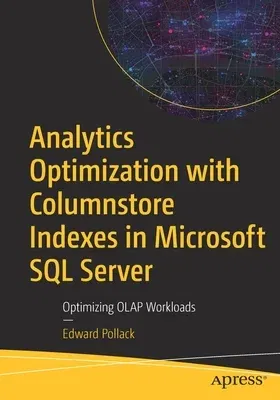Meet the challenge of storing and accessing analytic data in SQL Server
in a fast and performant manner. This book illustrates how columnstore
indexes can provide an ideal solution for storing analytic data that
leads to faster performing analytic queries and the ability to ask and
answer business intelligence questions with alacrity. The book provides
a complete walk through of columnstore indexing that encompasses an
introduction, best practices, hands-on demonstrations, explanations of
common mistakes, and presents a detailed architecture that is suitable
for professionals of all skill levels.
With little or no knowledge of columnstore indexing you can become
proficient with columnstore indexes as used in SQL Server, and apply
that knowledge in development, test, and production environments. This
book serves as a comprehensive guide to the use of columnstore indexes
and provides definitive guidelines. You will learn when columnstore
indexes should be used, and the performance gains that you can expect.
You will also become familiar with best practices around architecture,
implementation, and maintenance. Finally, you will know the limitations
and common pitfalls to be aware of and avoid.
As analytic data can become quite large, the expense to manage it or
migrate it can be high. This book shows that columnstore indexing
represents an effective storage solution that saves time, money, and
improves performance for any applications that use it. You will see that
columnstore indexes are an effective performance solution that is
included in all versions of SQL Server, with no additional costs or
licensing required.
What You Will Learn
- Implement columnstore indexes in SQL Server
- Know best practices for the use and maintenance of analytic data in
SQL Server
- Use metadata to fully understand the size and shape of data stored in
columnstore indexes
- Employ optimal ways to load, maintain, and delete data from large
analytic tables
- Know how columnstore compression saves storage, memory, and time
- Understand when a columnstore index should be used instead of a
rowstore index
- Be familiar with advanced features and analytics
Who This Book Is For
Database developers, administrators, and architects who are responsible
for analytic data, especially for those working with very large data
sets who are looking for new ways to achieve high performance in their
queries, and those with immediate or future challenges to analytic data
and query performance who want a methodical and effective solution


